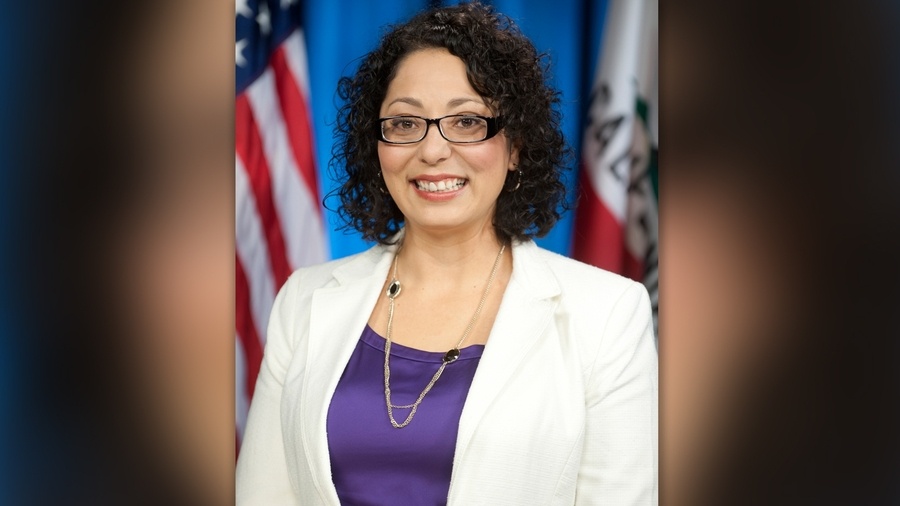By Guest Contributor: Nicole Gon Ochi, Advancing Justice – Los Angeles (AAAJ-LA)
Last month, reports surfaced that California Assemblywoman Cristina Garcia, the #MeToo activist under investigation for sexual harassment and under fire for using homophobic slurs, also made racist comments about Asians in 2014, when she reportedly said, “This makes me feel like I want to punch the next Asian person I see in the face.” Garcia’s statement came during a heated moment in California’s history when a bill (SCA 5) to repeal California’s ban on the consideration of race in college admissions (Prop 209) was defeated by Asian American opponents of affirmative action.
Garcia’s comment is undeniably hateful and offensive. It essentializes all Asian Americans into a single trope and targets them for violence. I wholeheartedly denounce Garcia’s comment, however I also empathize with her underlying anger because the anti-affirmative action organizing around SCA 5 was deeply painful for many people. For decades, although Asian Americans have benefited from affirmative action, we as a group have been used as a racial wedge to minimize the effects of structural racism, denigrate other communities of color, maintain white supremacy and argue for the virtues of colorblindness.
As a whole, Asian Americans have largely resisted efforts to co-opt our own history of discrimination and exclusion to reinforce a racial hierarchy that continues to harm us. When conservative white politicians began using Asian Americans as a racial wedge in debates over elite admissions policies in the 1980s, leading Asian American academics and activists resisted this characterization. A majority of Asian Americans voted against Prop 209 in 1996 and public opinion polling consistently shows that Asian Americans support affirmative action. So, it came as a surprise when a small group of highly organized, primarily Chinese immigrants quickly and effectively pushed Asian American state legislators, many of whom had already voted for the bill, to ultimately turn back an effort to restore equity to public higher education.
Prop 209 — which barred affirmative action in public education, employment, and contracting in California — resulted in a precipitous drop in admissions across the UC system and despite significant investment in race-neutral diversity programs, the UC system has never reached the same level of diversity that it had before Prop 209. Although the impacts on Asian Americans have been less than other communities of color, even Asian American admission rates have dropped since Prop 209 banned affirmative action.
So I can understand why Garcia felt betrayed by Asian Americans. It was a betrayal of our history; a history of collaboration between black, Latinx, Native American, and Asian American activists to pry open the doors of higher education and employment, a history of Asian Americans taking advantage of affirmative action for decades and passing those benefits on to their children, and a history of black and brown allies literally giving up seats to expand opportunities for Asian Americans. To reject race-conscious equity policies in 2014 was particularly tone deaf because that was the year that Michael Brown, Ezell Ford, Eric Garner, and countless other unarmed black people lost their lives to state-sanctioned police violence and college students of color rose up in protest against the institutional racism on their campuses.
But it’s not just the angry anti-affirmative action protestors that failed our communities in 2014; it’s also people like me, an Asian American activist who didn’t do enough to understand the concerns and the cultural context of these new immigrants and to head off their misguided advocacy. While I am a staunch supporter of affirmative action and am currently involved in defending Harvard’s race conscious admissions program, I am realizing that I and others need to do more. Despite widespread support among most Asian Americans for racial justice and race-conscious remedies, we as an Asian American community are in danger of having a vocal minority within our community define (and threaten) our long-standing relationship with other communities of color. It’s not enough for people like me to stand up for what is right — we must go further and find common ground and meet the needs of these new immigrants, educate them about the history of white supremacy and racial subordination in the United States, and invest in the deep, transformative political work necessary to move beyond self-interest and toward a vision of a shared future with other subordinated communities. So, I understand why Garcia was upset, both at Asian Americans who actively opposed SCA 5 and at Asian Americans like me who must do more to stop them.
But, Garcia’s use of hateful, violent rhetoric against Asians will not solve the problem any more than eliminating affirmative action will solve the problem of discrimination against Asian Americans.
In fact, Garcia and the “Asians” that she wants to punch in the face have one thing in common: they are pointing the finger at the wrong group. Asian Americans who oppose affirmative action are justifiably concerned about discrimination. But discrimination against Asian Americans is not the same thing as race-conscious admissions policies designed ensure greater inclusivity and diversity on college campuses. In other words, the consideration of race in a holistic review process is not the problem–if anything,white privilege is the problem. It’s the legacy admits, the wealth admits, and in some cases, the athletic admits, that make the pie smaller for everyone else, including Black, Latinx, Native American, and Asian American students.
In the case of SCA 5, as in the admission cases filed against Harvard and other schools, white conservatives have exploited Asian Americans’ very real fear of discrimination to further a colorblind agenda that ultimately will benefit white students. As an Asian American civil rights lawyer, I vow to deepen my fight to save affirmative action, not necessarily by litigating more cases (although I welcome those opportunities) but by working to bridge newer Asian immigrant communities with our historic struggles with other communities of color against racism and white supremacy, and ensuring our Latinx and other partners know that many Asian Americans stand arm-in-arm with them at this critical moment in our nation’s racial justice history.
I hope Garcia will apologize for her comment; but in the end, I’m taking them as a reminder of the hard but important work we must do as Asian American civil rights leaders.

Nicole Gon Ochi is the Supervising Attorney at Advancing Justice – Los Angeles’ Impact Litigation Unit. She joined Advancing Justice as a Skadden Fellow in 2010 and has taken a lead role in litigating and providing advocacy on matters involving employment discrimination, education, workers’ rights, affordable housing preservation, language access, and civil rights.
Learn more about Reappropriate’s guest contributor program and submit your own writing here.

